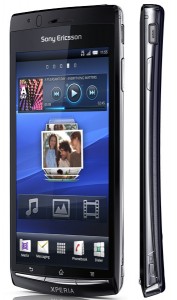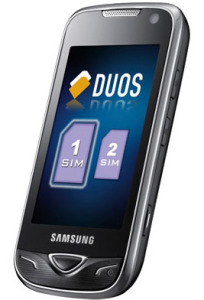Google’s release of Android OS 2.2 “Froyo” also fueled competitive heat directed at iPhone, although Apple continued selling a record number of iPhones in the first calendar quarter of 2010, and largely focused attention on the new iPad in the second quarter. With Apple now gearing up for the launch of iPhone 4, the question is: will Apple’s new smartphone be good enough to stand out in a market bathed in Android news, or will competition from Android devices shatter when iPhone 4 hits the market?
Mobile advertising firm Millennial Media has just released its Mobile Mix report for June 2010, highlighting some of the latest trends in the world of mobile and connected devices. The data shows that while Android is gaining, especially in developer adoption, Apple continues to make the biggest gains in the smartphone space.
The iPhone 4 was only available for one week in June 2010 so its impact on the survey results was not directly addressed. We wrote about Millennial’s May report and it is interesting to compare and contrast the two data sets month to month.
Overall, Apple remains the leader amongst both smartphones and connected devices. Millennial’s report finds that Apple actually made a 4% month-over-month gain in terms of device manufacturer marketshare in the U.S., giving Apple nearly 30% of all impressions.
Apple has been on a tear over the last decade in introducing products that competitors (including much larger, more experienced, and formerly entrenched companies) haven’t been able to match. For nearly ten years of iPod introductions, Apple continually grew with little effective competition from Sony and Microsoft, largely creating the market for hard drive based MP3 players and subsequently taking over the flash memory MP3 player market before releasing the iPod touch, which has no real competition from anyone. The iPhone and iPad have followed similar trajectories, facing a series of ineffectual “killers” that didn’t even make a dent in Apple’s recession-busting sales records.
One difficulty in making comparison between Apple’s smartphone and alternatives running Android is that they’re not the same thing. One can compare iPhone hardware features against an Android model, for example, but the value of iPhone 4 isn’t just its hardware, it’s the integration of its hardware paired with the iOS software designed to make it useful, and its integration with Apple’s iTunes and its MobileMe cloud services for media and app management, software updates, push messaging, remote administration, and other features.
Conversely, one can dismiss all of the value of iPhone 4 if using it means, for example, being tied to a single carrier in the US that provides unusable coverage for the user where they live. In such a scenario, picking a far inferior feature phone would be better if the goal were to actually place phone calls.
Individual circumstances and preferences color what choice makes the most sense to a particular user. However, it’s also important to look at the overall attractiveness of a product in the global market, as if Apple maintains its lead, then problems like AT&T’s coverage holes will be resolved with network expansions and the eventual availability of iPhone on other US carriers. Conversely, if enough users flock to Android, then Apple will eventually lose its wide lead in being able to attract the primary attention of the best third party developers.
As AppStoreHQ noted earlier this month, more developers are getting into the cross-platform game. Still, when comparing the results with those from last month, the figures appear nearly unchanged. 89% of developers reported that they are focusing on a single platform. Of that 89%, 57% are focused on iOS, 31% on Android and 8% on BlackBerry.
Recently, the intense competition among PC makers has resulted in efforts directed primarily at achieving lower prices (achieved by cutting hardware corners or using old technology), resulting in the short term boom among netbooks. Apple has kept the bar high among Macs, resulting in better quality at a higher price. Rather than pricing itself out of the market, this has resulted in Apple’s Mac sales outpacing the grown of the global PC market by a factor of around 4x. In smartphones however, Apple is maintaining a quality edge at an equal or lower price, thanks to the economies of scale the company enjoys due to its sales of tens of millions of iPods.
The real loser, it looks like, is Blackberry. Although it had a small uptick in ad requests month-over-month, when you look at the developer share contrasted with its market position, you can see that Android has more than taken its place. When we talk to developers, the two platforms we hear the most about are iOS and Android. That isn’t to say that BlackBerry development isn’t still increasing, but the momentum has clearly shifted to Android.
In the Android world, hardware makers may include a front facing or high resolution camera, but the software that runs that camera may be poorly integrated, as was the case with both the Motorola Droid (a very high megapixel camera paired with awful software that couldn’t take good photos) and the new HTC EVO 4G (which supplies a front facing video chat camera but relies on problematic, proprietary software from third parties to actually do anything).
Apple’s iPhone 4, like the 3GS last year, doesn’t just shoot video but actually makes it easy to trim videos and distribute them. Apple’s interest in making a very sophisticated (but $5) iMovie app for iPhone 4 shows the extent of its interests in pushing hardware using innovative software. That’s something that is conspicuously missing on both the Windows PC and among Android mobile devices, where hardware specs are supposed to stand on their own merits, regardless of usability and practical functionality.
As with Apple’s other software APIs, including CoreLocation and Accelerate, the new motion-control frameworks in iOS 4 abstract away the differences in hardware between new and older iOS devices, avoiding the fractionalization problems Android experiences as each new model introduces (or fails to include) specific hardware features. The result is that Apple’s iOS makes it easier for third parties to actually use new hardware.
What will be interesting is to see how the entire market is impacted later this fall with the release of the Windows Phone 7. Developers got access to the SDKs and toolkits this week, and Microsoft is going to be making a big play for the mobile space. Embarrassments like the Kin aside, we think that discounting Microsoft’s potential impact would be premature.
Resources :appleinsider.com,mashable.com











All I’m reading here is “blah blah I love apple and I’m afraid of the droid. Apple might have a lot of flash, but its camera couldn’t zoom until ios 4, the phone function is still awful, it won’t recognize phone numbers in emails, and they had to release a whole new phone to introduce copy/paste.
I’ll choose an inferior (and replaceable) camera app over gimped functionality and a censored market. My droid is like a tiny laptop that easily performs every business and pleasure function I need, whereas my iphone is really just a toy in comparison.
Os with Appstore and Iphone4 seems a little bit better than Android 2.2 but I really want to see my web sites ( http://www.fotografo-matrimonio.biz and http://www.wedding-photographer.it/ ) on my smartphone. Next smartphone will be android based. Waiting for Htc Desire HD.. In the lon run Apple will support Flash Player. Otherwise will loos a lot of market.
The only real issue for me of getting an Android device as oppose to iPhone is support.
You’re a fucking moron
i like the blog except those unrelated, annoying ads everywhere, whats “mom making oven” gotta do with this blog? fix that and will surely get more crowd coming in
This is a great article! I love how whenever I search google I get webpages telling me android is better. Bing doesn’t give a crap about iOS vs. Android so I can already expect non-biased articles haha
The feeling I get from reading this article is that the writer is in love with ios/apple. Where I began feeling that was when he seperated apple by pitting android against blackberry.
Android is more successful because it sells an OS that is used by many manufactures which produce many phones, tablets, etc.. Where IOS is strictly for apple phones, tablets, etc.
Judging from current sales, If it wasn’t it for Apple being out first, I’m not sure if would’ve ever been in the lead. On the market scale, Android is climbing at an 80 degree angle.